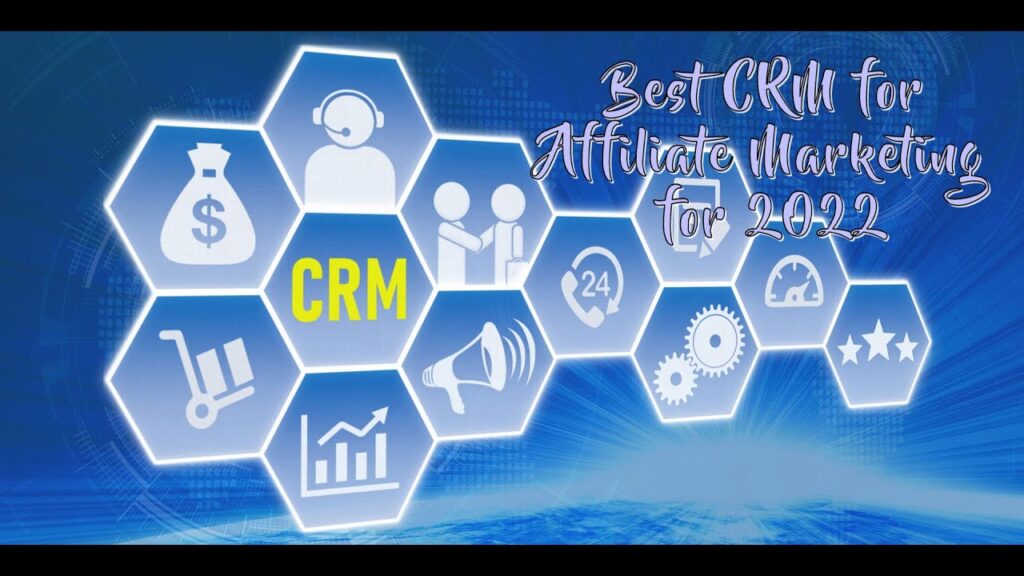ARTICLE SOURCE: https://digitalseoaudit.com/best-crm-for-affiliate-marketing-in-2022/
If you’re in affiliate marketing, having a great CRM is key to success. Here are the best CRMs for affiliate marketing in 2022, and what they can do for you.
*What is CRM Software?
A CRM, or ”customer relationship management,” is a sort of software that helps businesses manage, track, and organize their contacts with clients. A CRM can aid you in maintaining customer information such as user activity, how long a consumer has been with your firm, purchase documentation, and notes on sales interactions so that you may improve sales and marketing processes while also improving client service throughout the company. The goal of CRM software is to follow the actions and behaviors of your existing or potential clients through your company’s website, social media, or email marketing efforts, then guide them through the sales or purchasing funnel by sending a triggered email or alerting a sales representative.
🔴Subscribe for more free YouTube tips: http://bit.ly/2zTJXwh
📹Share this video with a friend:
https://youtu.be/emMABrxEymk
⦿ LET’S CONNECT!
➤ Facebook: http://bit.ly/2Un5h6r
➤ TikTok:https://www.tiktok.com/@misterj_digitallifestyle
➤ Instagram: http://bit.ly/2Zus1Y8
➤ Twitter: http://bit.ly/2LfJydR
➤ Pinterest: http://bit.ly/2NHiSEx
👔https://www.youtube.com/channel/UC2n1ATStGlsmNjb2HiZpTbg?sub_confirmation=1
*How Does CRM Make Sales and Marketing Easier?
CRM software like Salesforce lets you automate and coordinate your sales and marketing operations more effectively than ever before. If your CRM is linked with sales and marketing automation, you can construct a sales and marketing engine that will take your company to new heights.
Sales – Sales CRM software makes the sales process smoother for everyone involved by providing better visibility, prioritization, and follow-up.
Greater Visibility – A CRM is necessary for a sales team’s visibility. Having all customer and lead data gathered together in one place allows easy access to information and makes it simpler to keep track of changes between teammates if the account owner is responsible for changes. As a sales representative, you can monitor a lead’s activity, permitting you to tailor the conversation and advances appropriately. For example: if you see that they have watched your company overview video but haven’t looked at any case studies yet, during your talk with them you could encourage signing up for a consultation or webinar. Inbound calls are more quickly identified and logged by CRM systems, in addition to VoIP phone systems. A lead’s phone number is recognized when they call a sales rep, and their account appears on the sales rep’s computer screen immediately. Sales management may also benefit from a CRM system through increased visibility. Sales management can watch individual sales reps’ activities and performance as well as track the entire sales pipeline with ease using a CRM.
Clear Prioritization – A CRM is a valuable tool for the sales team as it allows them to prioritize their outreach efforts. This is done through lead scoring, which calculates a lead’s interest in your product or service. The leads with the highest scores are pushed to the top of the sales team’s tasks list. Additionally, your CRM can prioritize outreach to customers by flagging records with approaching contract renewal dates or those customers who may be interested in trying out a new product.
Better Follow-Up – Utilizing a CRM (Customer Relationship Management) system enables improbable follow-up rates (which in turn drives more sales). By automating lead and client interaction, you don’t have to rely on yellow sticky notes or manually copy + pasting the same generic email response. Your new CRM will take care of initiating contact at opportune times, creating a uniform customer experience that converts curious onlookers into paying customers.
What Does a CRM System Do?
Any customer information system, including CRM software, relies on contact management as its core function. The point of a CRM is to store and manage data for every type of contact, from leads to business partners.
*What a CRM Doesn’t Do?
CRMs are designed for backend operations like production, warehousing, shipping, engineering or finance. And of course, CRM tools manage what they can see. So if people work leads or deals outside the system, that lowers its effectiveness for the whole team.



